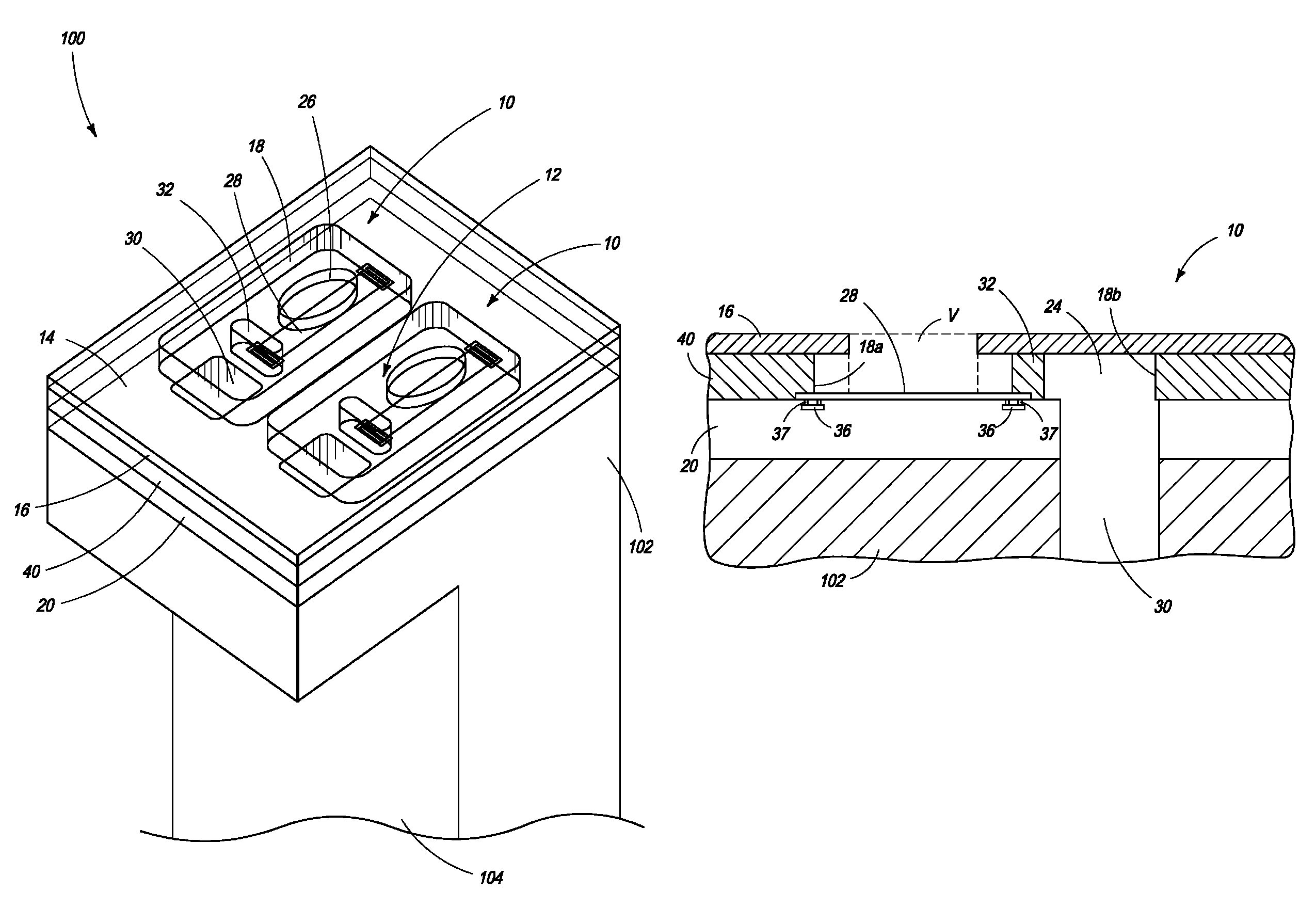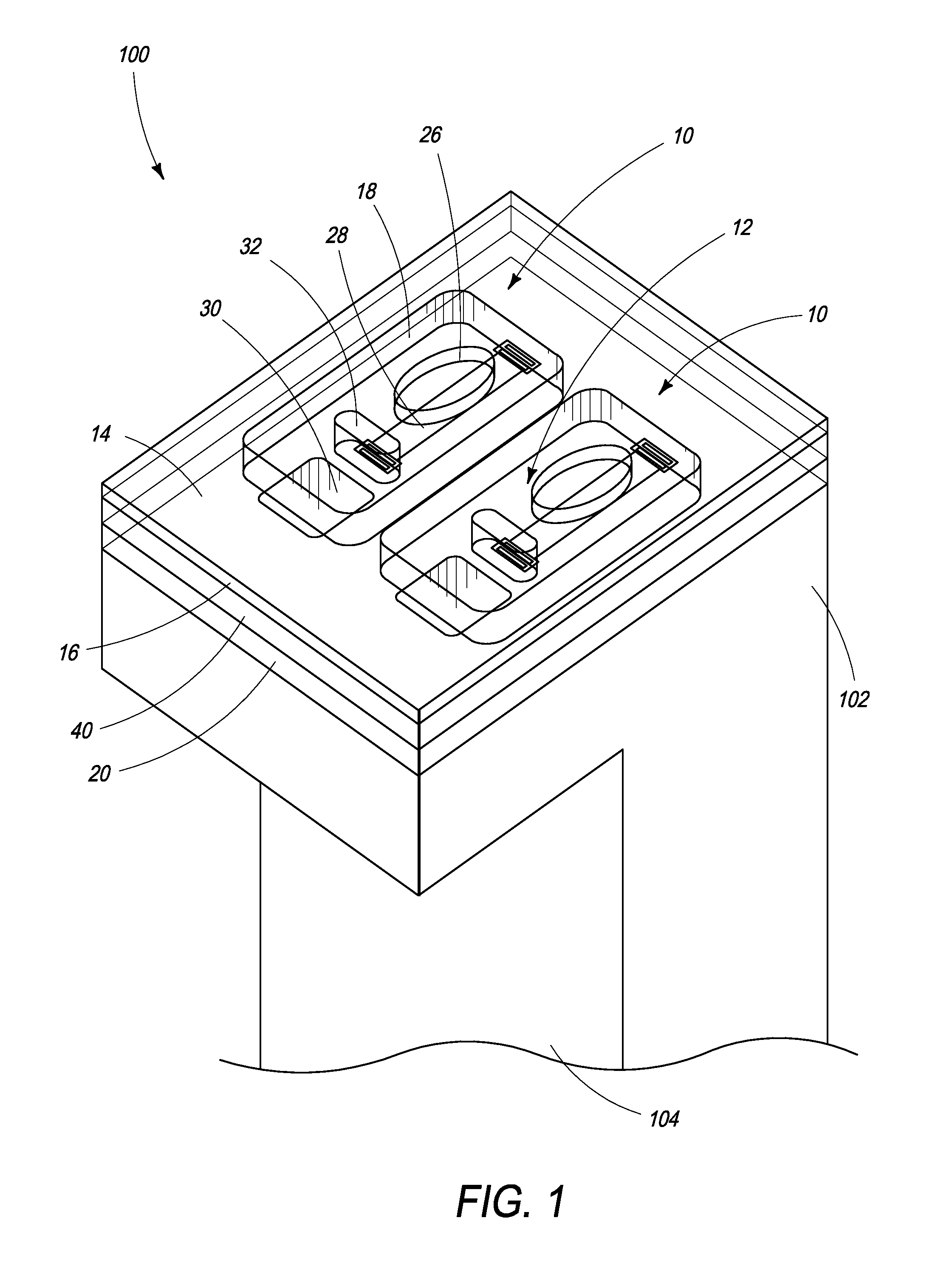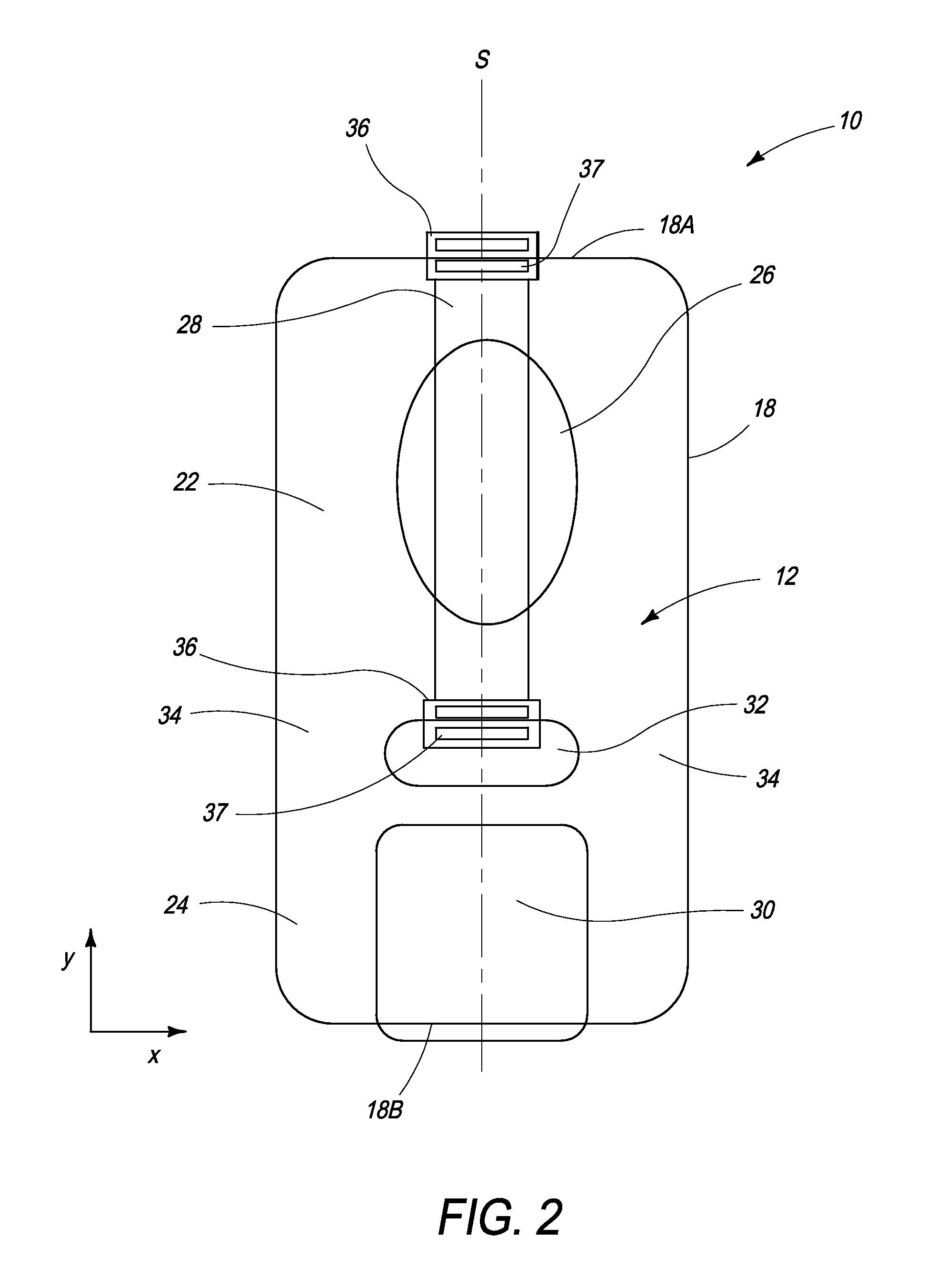Inkjet nozzle device configured for venting gas bubbles
a technology of gas bubble venting and nozzle device, which is applied in the direction of printing, inking apparatus, etc., can solve the problems of inability to achieve perfect fluidic symmetry around the heater element, affecting the operation of the device, and requiring relatively complex fabrication methods. achieve the effect of fluid isolation, reduce backflow, and minimize the possibility of fluidic crosstalk between nearby objects
- Summary
- Abstract
- Description
- Claims
- Application Information
AI Technical Summary
Benefits of technology
Problems solved by technology
Method used
Image
Examples
Embodiment Construction
Device Geometry
[0070]Referring to FIGS. 1 to 3, there is shown an inkjet nozzle device 10 according to the present invention. The inkjet nozzle device comprises a main chamber 12 having a floor 14, a roof 16 and a perimeter wall 18 extending between the floor and the roof. Typically, the floor is defined by a passivation layer covering a CMOS layer 20 containing drive circuitry for each actuator of the printhead. FIG. 1 shows the CMOS layer 20, which may comprise a plurality of metal layers interspersed with interlayer dielectric (ILD) layers.
[0071]In FIG. 1 the roof 16 is shown as a transparent layer so as to reveal details of each nozzle device 10. Typically, the roof 16 is comprised of a material, such as silicon dioxide or silicon nitride.
[0072]Referring now to FIG. 2, the main chamber 12 of the nozzle device 10 comprises a firing chamber 22 and an antechamber 24. The firing chamber 22 comprises a nozzle aperture 26 defined in the roof 16 and an actuator in the form of a resisti...
PUM
 Login to View More
Login to View More Abstract
Description
Claims
Application Information
 Login to View More
Login to View More - R&D
- Intellectual Property
- Life Sciences
- Materials
- Tech Scout
- Unparalleled Data Quality
- Higher Quality Content
- 60% Fewer Hallucinations
Browse by: Latest US Patents, China's latest patents, Technical Efficacy Thesaurus, Application Domain, Technology Topic, Popular Technical Reports.
© 2025 PatSnap. All rights reserved.Legal|Privacy policy|Modern Slavery Act Transparency Statement|Sitemap|About US| Contact US: help@patsnap.com



